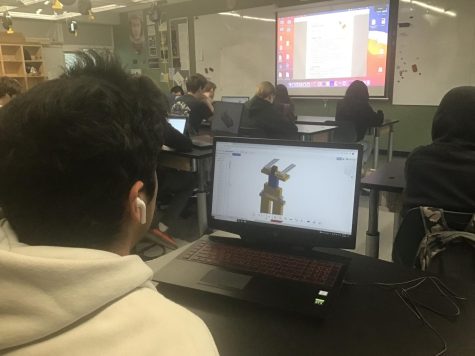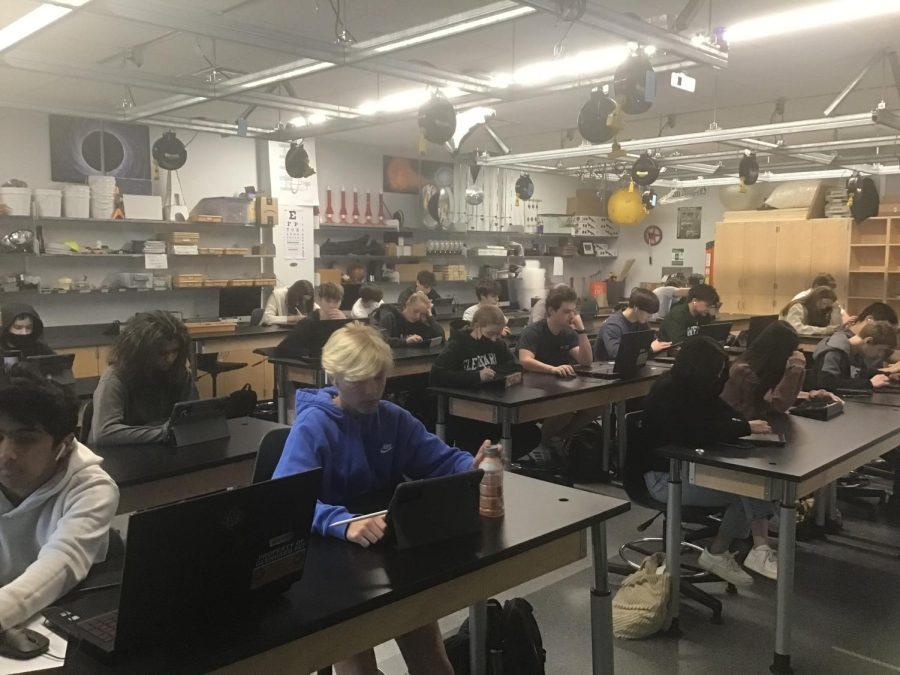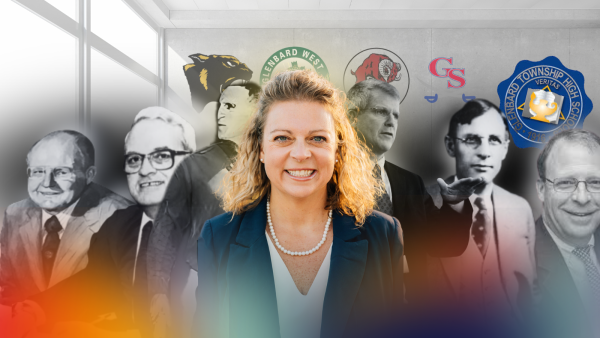West expands engineering courses, Science teacher encourages students to enroll
Glenbard West offers one engineering class and plans to add an additional course in 2024. Students currently in the course and teachers alike invite all students to register, even if uninterested.
The current course, “Intro To Engineering and Design” offers a lot to students and in a few years another course named “Principles of Engineering and Design” will be available for students to participate in.
Radomir Niewrzol, a science teacher at West, is the instructor for both courses. Mr. Niewrzol first started his career at the Argon National Laboratory, a research center that focuses on projects ranging from studies of the atomic nucleus to global climate change research, where he gained experience in problem-solving and learned numerous skills. “I definitely learned how to use really creative solutions, as you used the design process, [and] as you’re finding different problems that you’re trying to solve, [you ask yourself] what are some different creative solutions that you can apply in order to solve the problem?” he says. “You try one way and if it doesn’t work you try another way and you continually refine your solution until you reach a satisfactory result.”
John Metzler, the department chair for science, engineering, and industrial technology, says that “many of the issues facing today’s world are solved through engineering: flooding, energy crisis, water distribution, to even many things we take for granted in the world such as homes, buildings, bridges, or industrial applications.”
In order to solve these tough issues, engineers need to be able to use skills and certain tools to overcome their challenges. Mr. Niewzrol teaches his students in his class how to use tools like CAD, Computer Aided Designing, which he describes as “drawing in 3-D using computers”, alongside skills such as problem-solving to help students persevere. He describes the class as “project-based”. “It’s a series of different projects that go throughout the year that build on from more basic to more advanced skills, most of the projects revolve around the design process,” he says. The design process is “a particular sequence of steps that students have to do in order to develop a good final design.”
Steve Nguyen, a former student of Mr. Niewrzol, currently studies industrial design at Iowa State University and is using the skills acquired from his engineering experience at West, such as the design process, in order to invent his own creations. “The project I’m working on is called wearables,” he says. “We have to create a wearable design after listening to provided songs and music.”
Clarissa Sanchez, a senior currently taking the course, says, “I’ve developed more people skills and [learned] to be very clear with ideas when working with a team. In the future, I do plan to keep trying to think creatively to solve problems.”
While the current course offers lots of experience, the second engineering course is expected to be ready by 2024 and will dive into much deeper topics. “There’s a lot of robotics in it,” says Mr. Niewrzol. “It focuses on much more complex designs that use artificial intelligence and different electronic components in different ways to build robots.” Artificial intelligence is a field that is still evolving in modern-day engineering and Glenbard West offers an incredible opportunity to learn more about it.
Mr. Metzler elaborates, “There are a wide range of aspects associated [with engineering], including biomedical, chemical, and aerospace. We will need more people who have a knowledge of science and its application to ensure we survive as a planet. Consider taking an engineering course to get a sense of what engineering really is.” Mr. Nguyen goes further and says that “the course at West was unlike anything I have experienced in school before college, it helped me practice my skills that I would like to do outside of school.”
Even if you aren’t currently interested in engineering as a field, it is worth considering looking into taking these engineering courses as an elective for a year, because even if what you do in the classroom doesn’t end up intriguing you, the skills you learn throughout and the experience you gain will be with you for the rest of your career. Mr. Niewrzol ends by saying that “even someone who’s not interested in engineering, I still think they should take it because if nothing else, they’ll become a much better problem solver.”









